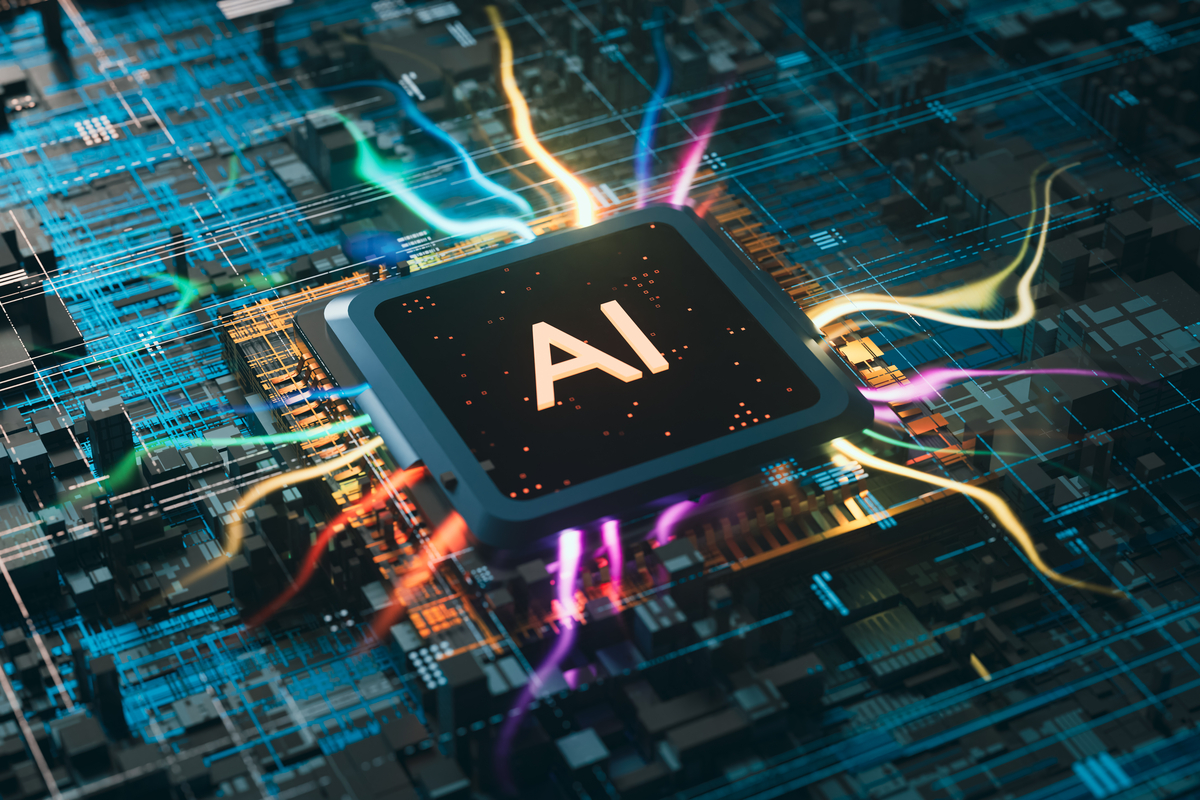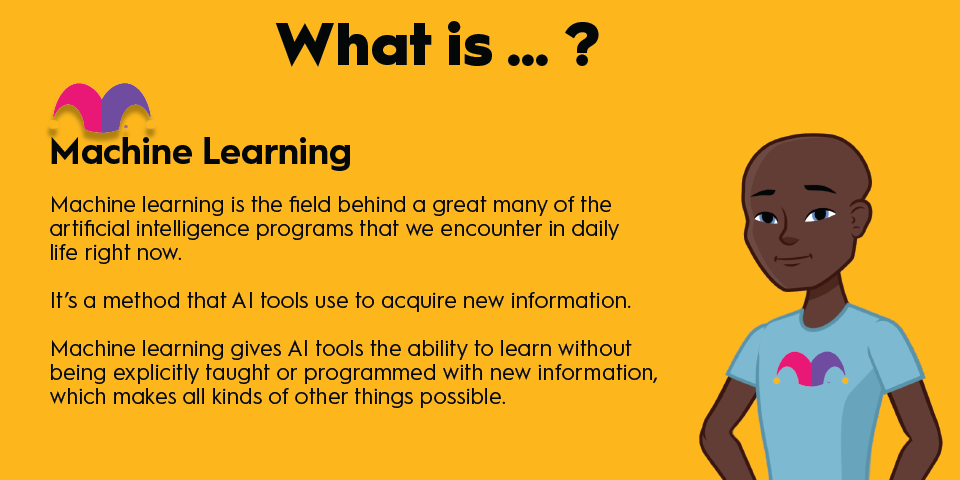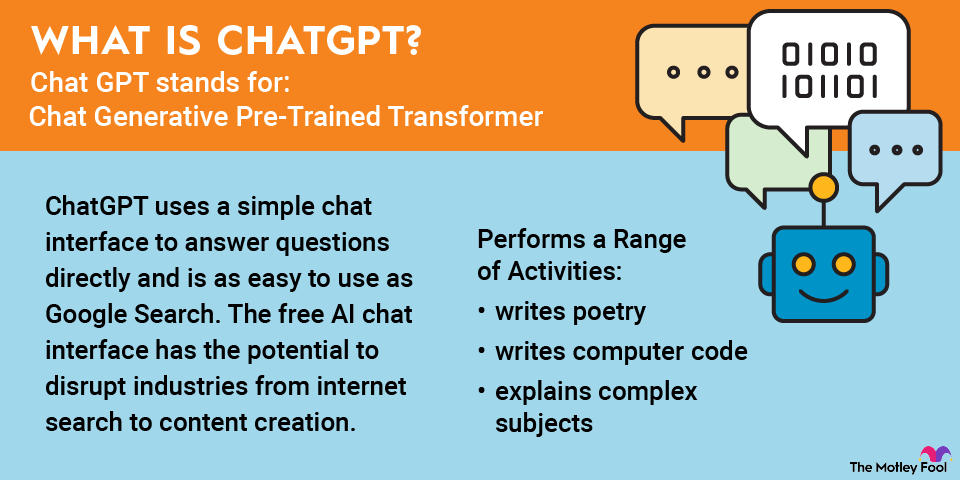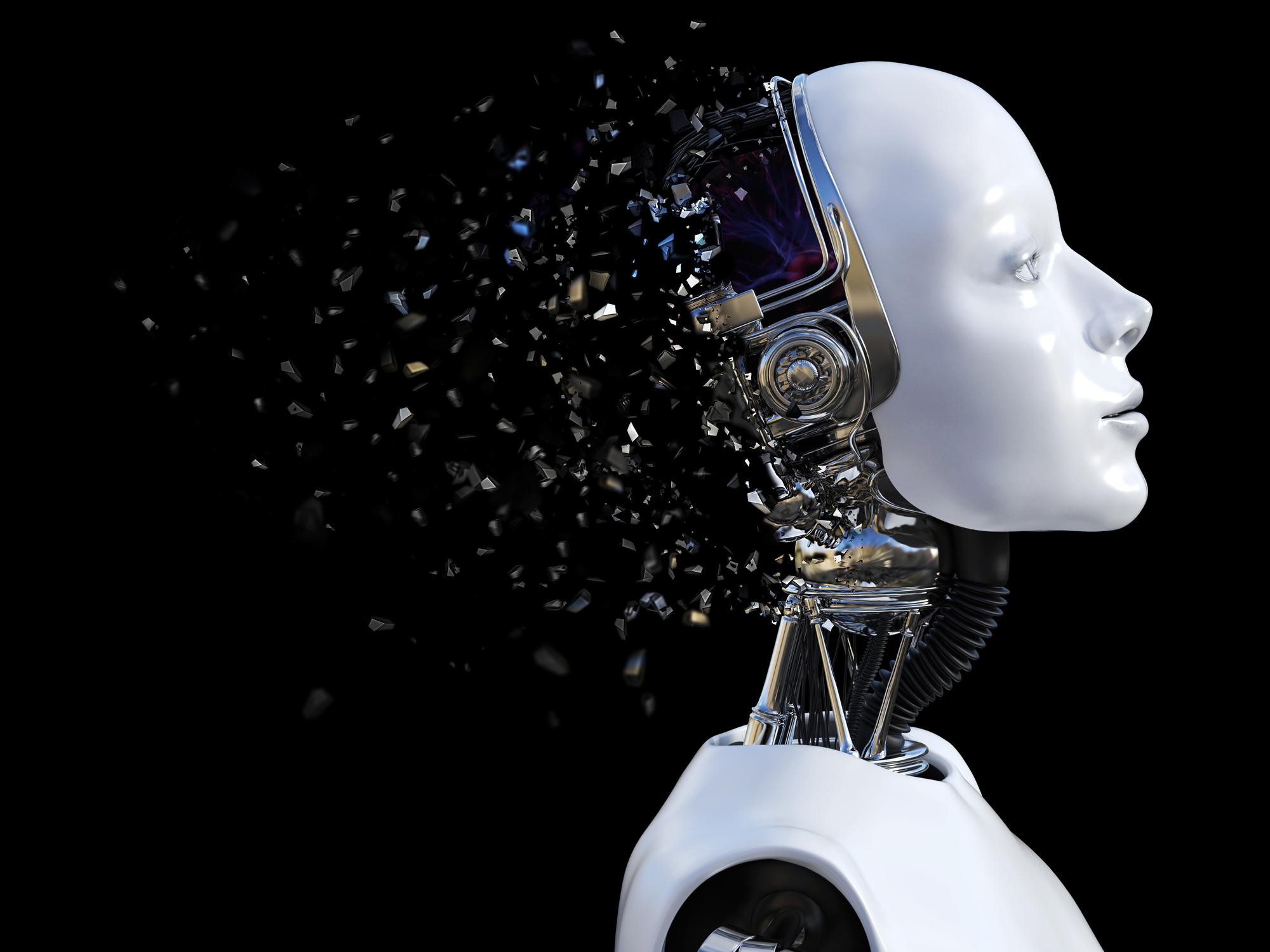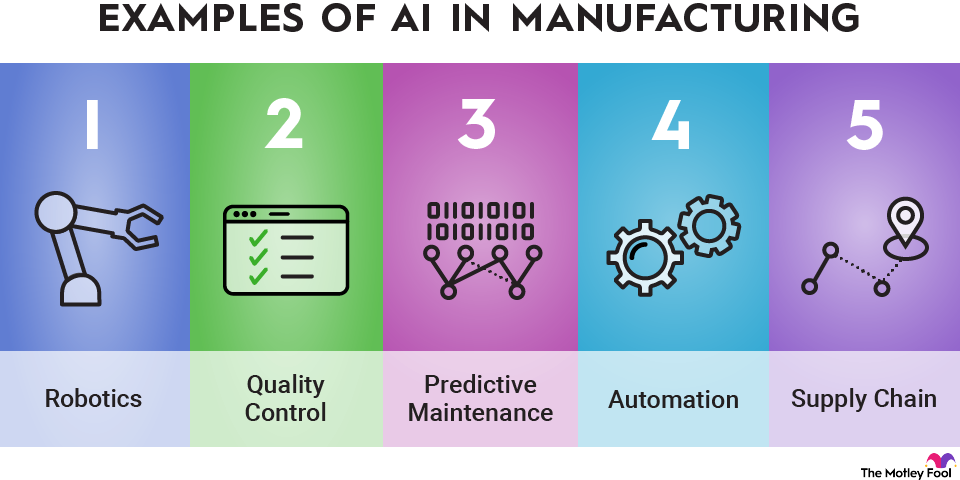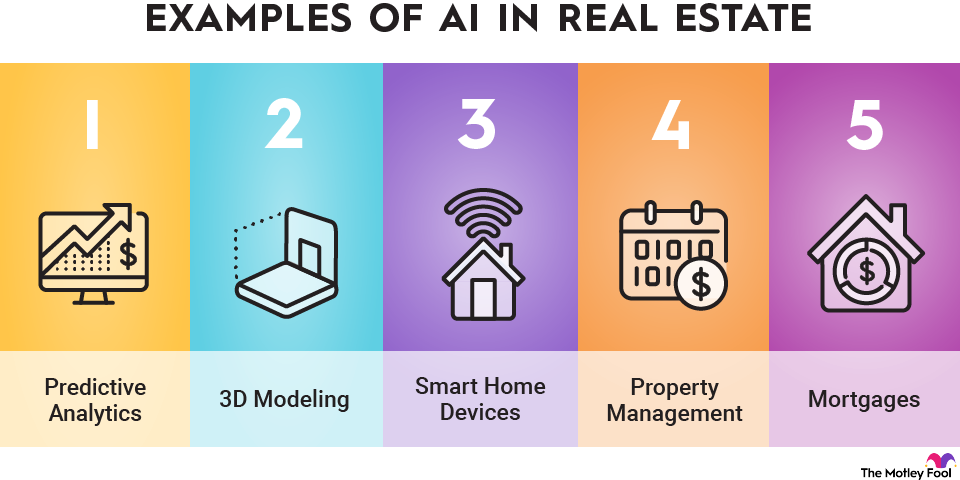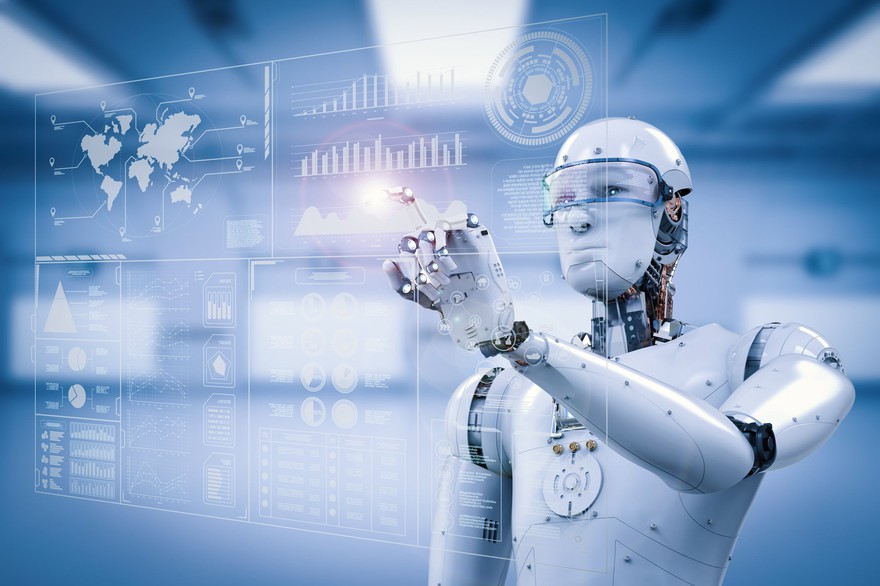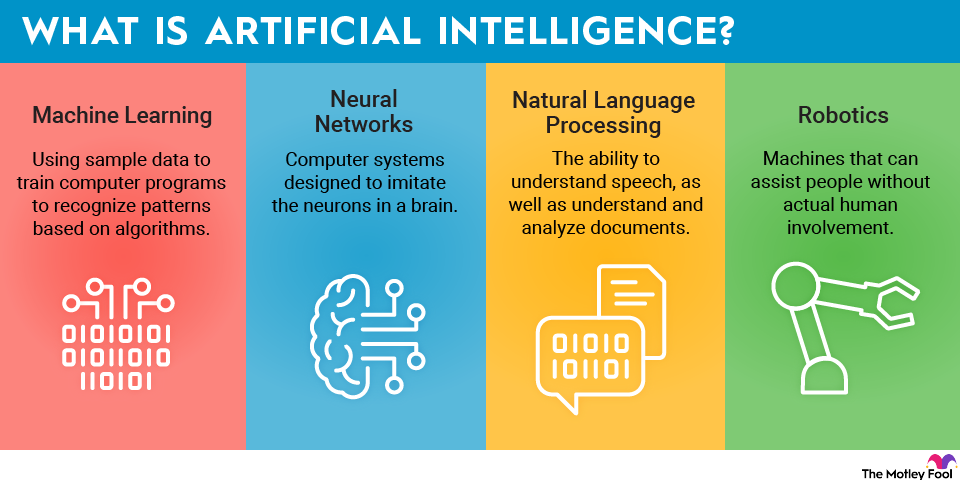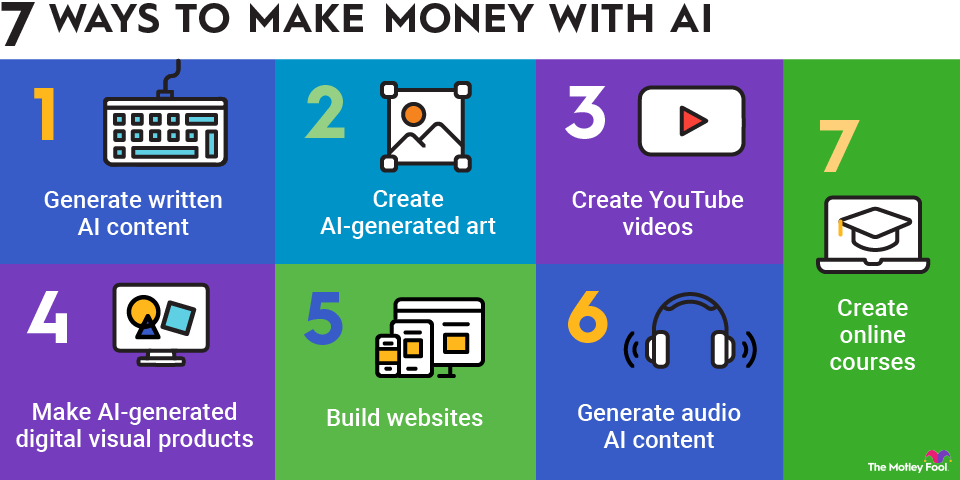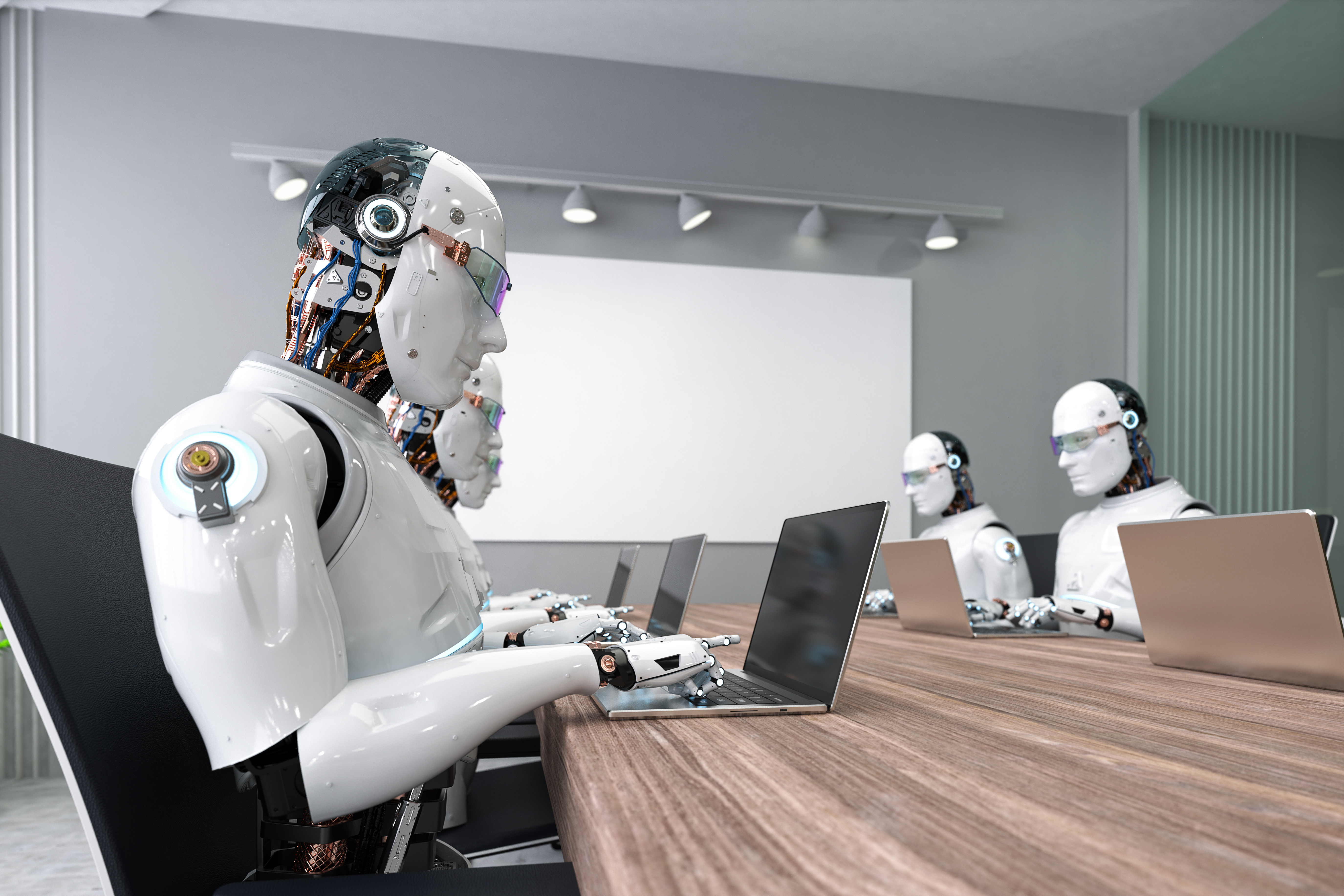Following the launch of ChatGPT, artificial intelligence (AI) has been sweeping the business world, and big changes are happening with AI in retail.
Artificial Intelligence
The retail industry is always evolving according to customer demand and available technology, going from brick-and-mortar to e-commerce to omnichannel. Artificial intelligence is helping retailers improve their operations in a number of ways, including demand forecasting, pricing, and recommendations, to use three of the more prominent examples.
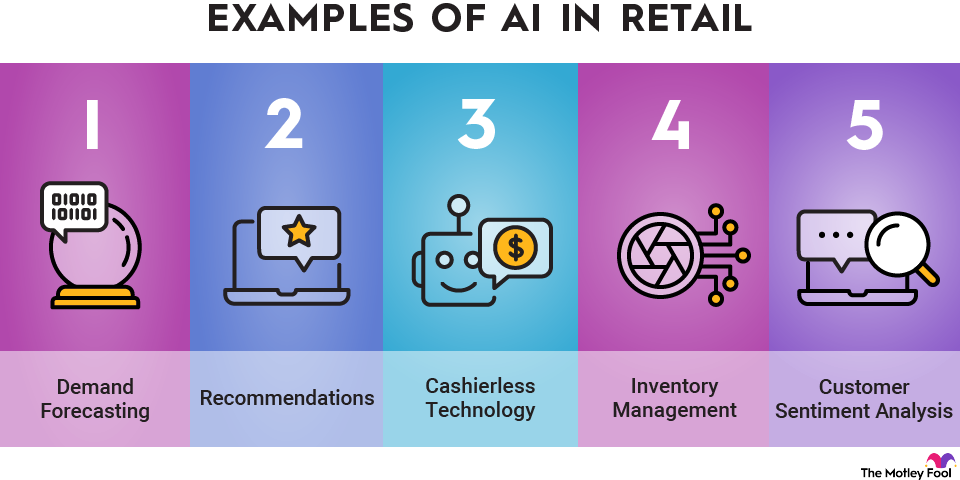
Amazon (AMZN -4.36%) has long embraced AI across its business lines, including e-commerce. And other large retailers, like Walmart (NYSE:WMT) and Target (TGT -2.97%), have followed.
Increasingly, retailers are looking to AI to gain advantages through cost management and learning more about how customers engage with their products. In this look at AI in retail, we'll discuss AI, its role in retail, and a number of retail industry applications.
What is artificial intelligence?
AI is the ability of computers and machines to perform tasks that generally require human intelligence. This includes formulating answers from disparate pieces of information, recognizing a pattern, and applying it elsewhere.
One of the most common AI applications is machine learning, or the training of an algorithm to recognize something like a part of the body or the difference between a man and a woman. Many AI applications used in retail fall under the category of machine learning since making predictions is a key part of how retailers use technology.
However, retailers are likely to embrace AI in more ways as it evolves in areas such as natural language processing, computer vision, and robotics.
Five uses of AI in retail
1. Demand forecasting
Demand forecasting is one of the most common applications of AI in retail. Understanding which customers want specific products and when they want them is key to helping retailers manage the supply chain, optimize inventory levels, and avoid markdowns.
Demand forecasting is valuable enough that Nike (NKE -2.38%) acquired AI start-up Celect for $110 million in 2019 to help it better understand consumer demand in real time. As AI algorithms become more powerful, more companies are likely to use AI tools to embrace the power of demand forecasting and better understand their customer base.
2. Recommendations
Recommendations are another popular AI application for the retail industry. For example, when you buy something on Amazon, the website will suggest other things based on your past order history, user profile, and other details that AI algorithms process and combine to provide the best answer.
Most online retailers are also using some form of recommendation AI to improve the customer experience and sell more products to customers. That same recommendation engine can also determine the products you're shown when you go to a site like Amazon based on past orders and searches.
Absent the natural cross-selling benefits of a brick-and-mortar store, online retail uses AI to accomplish similar things since retailers don't want to miss an opportunity to upsell a product or recommend a complementary add-on.
3. Cashierless technology
Retailers are experimenting with ways to ring up customers more efficiently. Self-service registers are the most common technique for automating the checkout process and eliminating lines. However, Amazon has moved in a different direction with its Just Walk Out technology.
Using a series of cameras on the ceiling, this AI-based system tracks what customers pull off the shelves. It then automatically charges them via an app when they walk out of one of its Amazon Go stores, forgoing the need to stop and pay.
Amazon now has the technology in 16 Amazon Go convenience stores, but it recently removed its Just Walk Out technology from its Amazon Fresh supermarkets to test its smart cart technology. The company is now focused on licensing Just Walk Out, and there are more than 140 third-party locations using Just Walk Out technology, opening up a valuable new revenue stream.
4. Automated inventory management
Inventory management is a crucial task for any retailer. Companies need to make sure they have products in stock without having too much inventory, which can lead to extra management costs and markdowns.
Walmart, for example, uses AI technologies to help it better manage its inventory. That includes attaching cameras to floor scrubbers that record inventory levels on shelves and send the information to an AI-powered data center, which, in turn, helps the company make better decisions about its inventory.
Is AI the future of retail?
AI is already influencing retailers, but it has mostly taken place behind the scenes. While generative AI tools like ChatGPT may offer new ways for retailers to engage with customers, the influence of AI in retail seems likely to remain behind the scenes, especially for brick-and-mortar players.
Still, there are many ways that AI can help these retailers improve their businesses, including through inventory management, product optimization, and demand forecasting. As Amazon experiments with the technology, we should see more examples of AI in online shopping.
If you're looking for ways to get exposure to AI in the retail industry, you can consider the stocks above. Alternatively, you can check out this list of AI stocks or look to an AI exchange-traded fund (ETF) if you'd like to own a broad range of companies using AI in their businesses.






